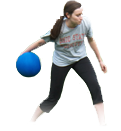
The Dark Side of Fitness Trackers
Fitness trackers are big business. From simple pedometers to smart watches, 2017 data from Juniper Research suggests that more than 75 million Americans will be using a fitness tracker by 2021.
A 2016 study published in the journal JMIR mHealth and uHealth showed that fitness trackers increase the amount of physical activity wearers get each day. However, there are downsides to quantifying every aspect of your life. For some, the desire to track every step taken and calorie burned becomes an unhealthy obsession. For others, numbers become more important than the messages from their own body.
Before you strap on that wearable, keep in mind some of the unintended mental and physical consequences of fitness trackers so that you can avoid them.
1. Data Obsession
While tracking your steps and heart rate can be a helpful tool, what happens when you becomes fixated on a certain number? From steps walked to daily active minutes to calories burned, keeping tabs on the onslaught of data from fitness trackers can become an obsession for some.
“I had a client who realized he forgot his watch as he was about to do a personal training session. He asked me if I could reschedule his appointment to a later time because he felt like it had to be tracked or it wasn’t worth working out,” says Louben Repke, a certified personal trainer and founder of Repke Fitness. Tracking calories and measuring every morsel of food can become obsessive and lead to unhealthy relationships with food. The same can be said about wearing a fitness tracker.
What you need is a good note to self (either literal or figurative). Remind yourself that there are days where you won’t perform as well as you did in your previous session due to stress, lack of sleep, dehydration or nutrition. Repke says: “It’s okay to take days off or enjoy a light active recovery day. Those are important for your performance and results in the gym. However, when you continually try to outperform the numbers your fitness tracker collected, this can and will lead to burnout, injury and sickness.”
2. Focusing on Quantity Over Quality
When your fitness goals are measured by steps taken, heart rate attained or minutes of activity, it can be easy to value the quantity on the screen over the quality of the exercise itself. While 20 minutes of lifting weights may increase your heart rate and up your number of calories burned, poor form can cost you in the long run.
A 2014 paper published by The Journal of Applied Physiology finds that quality, not quantity, counts more when it comes to exercise. Menachem Brodie, an exercise physiologist and certified fitness coach agrees. He cites the numerous people he’s seen end up with overuse injuries or mental and physical burnout from focusing too much on numbers.
Sacrificing form in an effort to get more minutes or calories burned on your fitness tracker is more likely to lead to injury than ultimate results. Slow your roll and take time to actually enjoy your workout.
3. Making Data More Important Than Body Messages
Fitness trackers can become a hindrance when you rely on the data it provides to dictate the success of a workout or the state of your health. “My biggest qualm with fitness trackers is that it encourages people to look at data instead of pay attention to their body,” says Madison Chappell. She is a certified fitness coach, yoga instructor and CEO of the FitnFlow app.
“Health is a full picture of mental and physical wellness. There is no one size fits all. Fitness trackers often take attention away from how a person is internally feeling and instead bring the focus to a number on a screen which is not always an accurate or full picture of health.”
A fitness tracker can provide helpful feedback. But it shouldn’t be the sole determinant of the overall success of your workout. So take a step back and ask yourself how you feel emotionally and physically. “Did you make progress with movement patterns? Were you able to increase the weight you lifted? Were you taking fewer breaks?” says Repke.
4. Falling Into the Comparison Trap
Many fitness trackers allow you to connect and compete with friends and family. This ability to compare results isn’t always helpful. “It’s easy for people to get down on themselves because of what they see online,” Repke says. “Maybe one day you took 5,000 steps and a friend was able to record 10,000 steps. You might see this and feel defeated.”
Do you find that the comparative and competitive elements of your fitness tracker are more of a hindrance than a help? If so, remove yourself from groups and instead focus on meeting and beating your own personal fitness goals instead of comparing your progress to others.
5. Diminished Intrinsic Motivation
No lie. It does feels good to get those fireworks on your fitness tracker when you hit your step or active minute goal. External motivators like those fireworks may motivate you to run those extra few minutes to reach a goal. But they may not continue to motivate you next week or next month.
“The data you get from fitness trackers, especially when you are reaching your goals, may act as an external reward. It may have a negative effect on your inner motivations for physical fitness and overall well-being,” says Lucia Grosaru. She is a clinical psychologist, psychotherapist and author of the Psychology Corner blog.
External rewards tend to diminish intrinsic motivation for activities you initially find interesting and enjoyable. But maintaining that intrinsic motivation for exercising is key. A 2012 study published in the International Journal of Behavioral Nutrition and Physical Activity found that intrinsic motivation for exercising is a more powerful predictor of long-term exercise engagements than external motivation.
6. Thinking It’s a Magic Fix-All
Some people may falsely assume that just because you wear a fitness tracker, you’ll be more motivated to get moving. But a 2016 study in the Journal of the American Medical Association found that those who self-monitored their diet and exercise lost more weight (eight pounds on average) than those who used a fitness tracker to monitor their workouts.
Joanne Donoghue, Ph.D., director of clinical research and assistant professor at New York Institute of Technology College of Osteopathic Medicine, found similar results in her research.
“We conducted a large fitness tracker study with 80 of our NYIT medical students over the course of a year. They all received a fitness tracker to wear for the year,” Donoghue says. “One group received weekly emails to offer ways to increase activity. The other group was told to try and attain 10,000 steps a day on their own and were not contacted.”
At the end of the year, the group that had weekly contact with investigators showed improvement in activity. The group that just wore the tracker alone showed no improvement. So if you find yourself lacking in the motivation department, you may also want to recruit a workout buddy to inspire and encourage you, too.
7. Aggravated Mental Health Concerns
Fitness trackers can be safely used by many. However, individuals with mental health issues such as obsessions, perfectionism or even eating disorders can overuse and abuse a fitness tracker, says Katie Ziskind. She is a licensed family and marriage therapist in Niantic, Connecticut.
“People with obsessive compulsive disorder and eating disorders such as anorexia will often over-check their fitness tracker hundreds of times per day to count calories, check their heart rate and use it for the opposite purpose of why it was created,” she says.
How do you know if your tracking is an issue? Stefanie Juliano, a licensed professional clinical counselor in Rio Rancho, New Mexico, says to look for these warning signs:
- Neglecting friends, responsibilities, children, family and other obligations in order to exercise
- Spending a large portion of your day thinking about when you will exercise
- Skipping more pleasurable activities in favor of one that burn more calories
- Consistently feeling shame, guilt, depression or anxiety about working out or eating
- Exercising only for the calorie deficit
“If you find yourself doing these, it may be sign that it is time to reevaluate your relationship with your fitness tracker or see a professional counselor,” says Juliano.
8. It’s Holding You Back
If you use a fitness tracker to tell you when you’ve reached a certain number of miles on your run or a certain number of active minutes, you may be inadvertently holding yourself back.
“If you are pacing your workout to be the same as always (same heart rate, pace, time, etc.) you may find that you are artificially keeping yourself at a comfortable fitness level,” says Marisa Michael, a certified personal trainer and registered dietitian at Real Nutrition in Portland, Oregon.
Why not try working out without your tracker from time to time? “What would happen if you went for a run without your tracker? You may find that you run faster or longer or find more joy in the run,” says Michael. Focusing too much on data can detract from a personal desire and ability to do one more mile or one more set.
by Kate Bayless
The Arena District Athletic Club is more than just a gym, it’s a premier fitness facility located in the heart of the Arena District in downtown Columbus. We provide convenience and quality, featuring top-of-the-line equipment, top-notch personal trainers, spa-like locker rooms and a wide variety of free group fitness classes daily including Cardio, Spinning, Barre Fusion, Yoga, Boot Camp and more. We offer free 2-hour parking and convenient contract-free memberships, to fit your healthy lifestyle needs. Don’t just join, belong.




